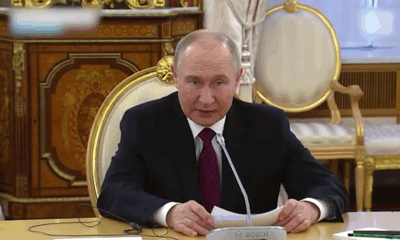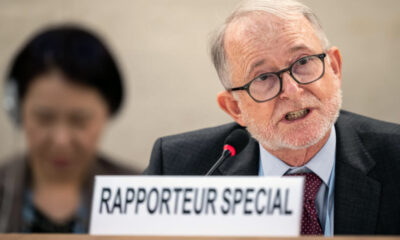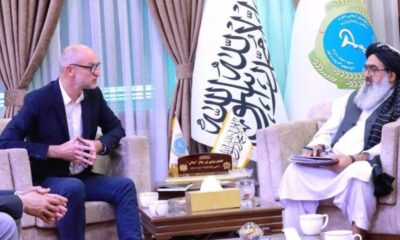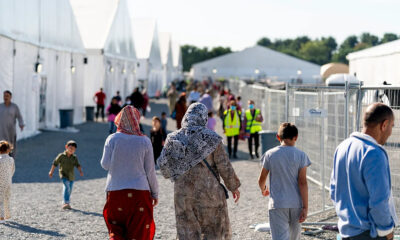Latest News
IEA calls on Pakistan and Iran to ‘exercise restraint’
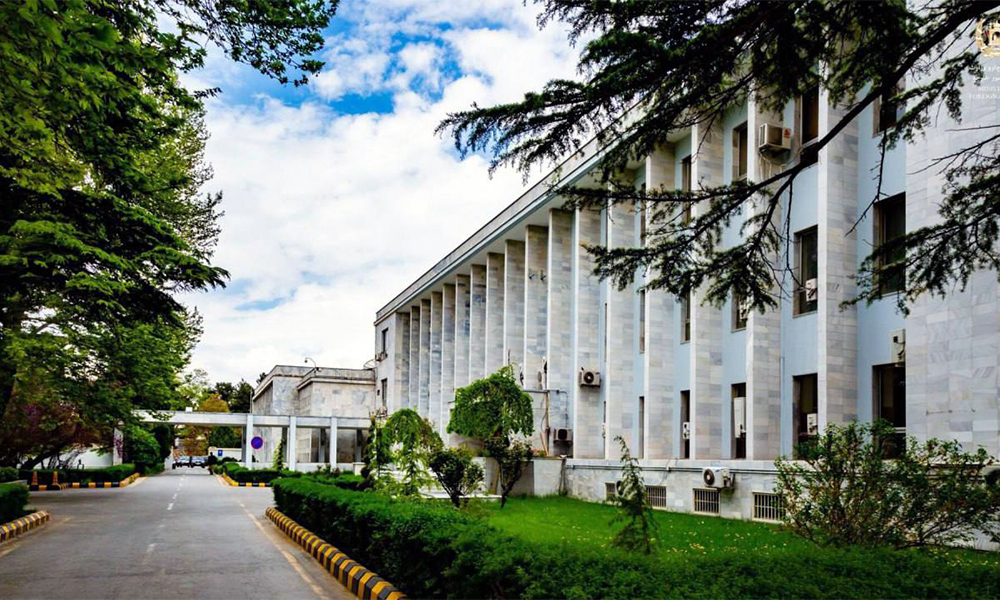
The Islamic Emirate of Afghanistan (IEA) has called on both Pakistan and Iran to exercise restraint after both countries carried out strikes on each other.
In a statement issued by the foreign ministry on Thursday, the IEA said the action taken this week by Pakistan and Iran “was worrying”.
“Since the region is taking a breath of security and stability after long forced wars and instability, both sides need to make efforts to strengthen the regional stability and discuss controversial issues through diplomatic channels,” the IEA stated.
This came after Pakistan conducted strikes inside Iran on Thursday, targeting separatist militants. Two days ago, Tehran said it attacked Israel-linked militant bases inside Pakistani territory.
On Thursday, Iranian media said several missiles hit a village in the Sistan-Baluchistan province that borders Pakistan, killing three women and four children, all non-Iranians.
“A number of terrorists were killed during the intelligence-based operation,” the Pakistani ministry said in a statement, describing it as a “series of highly coordinated and specifically targeted precision military strikes against terrorist hideouts”.
It added, “Pakistan fully respects the sovereignty and territorial integrity of the Islamic Republic of Iran.
“The sole objective of today’s act was in pursuit of Pakistan’s own security and national interest, which is paramount and cannot be compromised.”
A Pakistani intelligence source told Reuters the strikes were carried out by military aircraft.
“Our forces have conducted strikes to target Baloch militants inside Iran,” the intelligence official in Islamabad, the Pakistani capital, said.
“The targeted militants belong to BLF,” he added, referring to the Balochistan Liberation Front, which seeks independence for Pakistan’s Balochistan province.
Iran said on Tuesday it had targeted Israel-linked militant bases inside Pakistan. Pakistan said civilians had been hit and two children killed, warning of consequences for which Tehran would be responsible.
Islamabad recalled its ambassador from Iran on Wednesday, Reuters reported.
Pakistan and Iran have in the past had rocky relations, but the strikes are the highest-profile cross-border intrusion in recent years.
Pakistan recalls envoy from Iran after ‘unprovoked’ missile strikes
Iran’s foreign minister said it hit militants in “missile and drone” strikes. State media said Iranian missiles struck two bases of the Sunni Muslim group Jaish al-Adl, designated a “foreign terrorist organisation” by the U.S. State Department.
Nuclear-armed Pakistan said a violation of its airspace resulted in the deaths of two children but has not confirmed the nature of the violation, or the location of the strikes.
Only militants were hit, Iranian Foreign Minister Hossein Amirabdollahian said in Davos, Switzerland, where he was attending the World Economic Forum, alleging those attacked were linked to Israel, read the report.
Pakistan and Iran have in the past had rocky relations, but the strikes are the highest-profile cross-border intrusion in recent years.
The strikes were launched a day after similar attacks carried out by Tehran inside other neighbours, Iraq and Syria. Baghdad recalled its ambassador from Tehran after Iran’s state-backed media said it had hit an Israeli espionage centre.
Provincial officials in Pakistan said two children were killed and several others injured in strikes near the Iran border.
The violation was unprovoked and unacceptable, said Pakistani foreign ministry spokeswoman, Mumtaz Zahra Baloch. Pakistan reserved “the right to respond to this illegal act”, a message it had conveyed to the Iranian government, she said.
Pakistan would not allow Iran’s ambassador, currently visiting his home country, to return, Baloch said.
Latest News
Putin says Moscow will continue effective cooperation with Islamic countries

Russian President Vladimir Putin says despite the difficult international situation, Moscow will continue its effective cooperation with Islamic countries.
Putin made this statement in his opening message to the 16th International Economic Forum “Russia–Islamic World,” also known as the Kazan Forum.
He added that Russia will expand its relations with these countries in various sectors.
“For centuries, our multi-ethnic country has embraced broad cooperation with the Islamic world, and today, despite the challenges in international cooperation, we continue to effectively and consistently expand our economic, scientific, educational, humanitarian, and interregional ties,” he stated.
The Kazan Forum, a major global platform for dialogue between Russia and the Islamic world, is being held in Kazan, Russia, from May 13 to May 18.
Officials from the Islamic Emirate have also been invited to attend the forum, and a delegation from Afghanistan is expected to participate.
Meanwhile, several analysts view this event as a valuable opportunity for Afghanistan to enhance engagement and cooperation with the international community, particularly with countries of the Commonwealth of Independent States (CIS).
Although Russia has not officially recognized the Islamic Emirate, in recent months it has reopened diplomatic channels and cooperation with Afghanistan, including suspending the designation of the IEA as a banned organization.
Latest News
Richard Bennett ‘shocked’ by explosive testimony of ex-British soldiers in killings of Afghans
The IEA said that foreign forces committed many war crimes in Afghanistan while stationed in the country over 20 years.
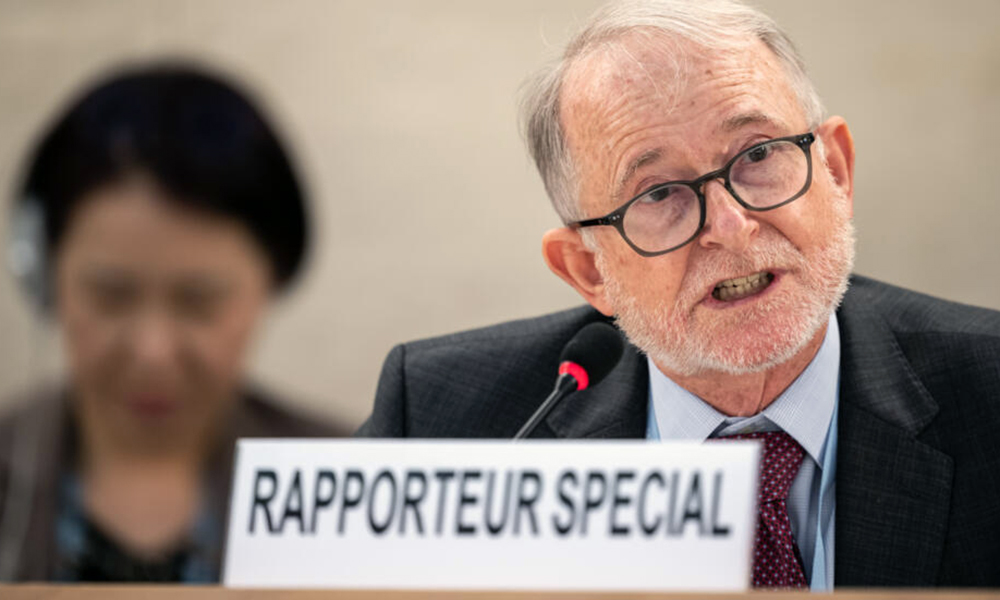
Richard Bennett, the UN Special Rapporteur on Human Rights in Afghanistan, has called for justice to be served over the unlawful killings by UK special forces in Afghanistan.
In a post on X on Monday, Bennett said the revelations in a recent investigation by BBC’s Panorama were “shocking”.
The Islamic Emirate also responded to the news and stated that foreign forces committed many war crimes in Afghanistan while stationed in the country over 20 years.
The IEA says these new confessions prove the extent of what transpired.
The BBC report featured testimony by several ex-soldiers on the unlawful killings while British troops were in Afghanistan.
These ex-soldiers told how British troops killed unarmed civilians in their sleep and executed blindfolded detainees.
One former soldier who served in Afghanistan recalled an incident in which troops “handcuffed a young boy and shot him. He was a child, not even close to fighting age.” He added that the killing of detainees by British special forces “became routine.”
Allegations of war crimes involving British forces in Afghanistan have circulated for years, and formal investigations are ongoing.
However, these inquiries and investigations by the BBC have still not led to any charges being brought against the alleged culprits or any meaningful justice for the victims.
Latest News
Trump administration to end protection program for Afghans
Over 8,000 Afghans were approved for TPS as of last year, according to federal statistics.
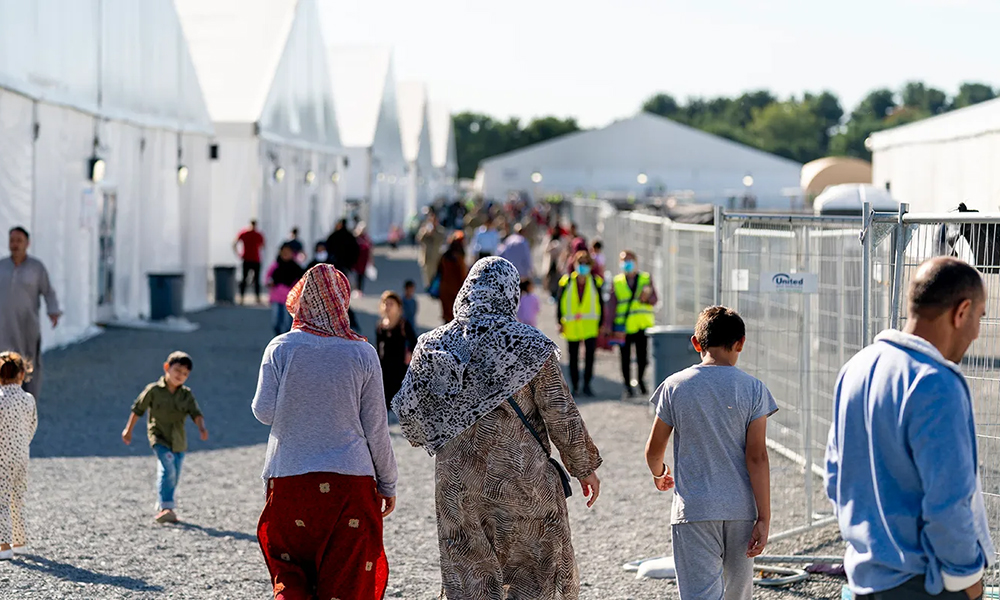
The Trump administration is ending the Temporary Protection Program that offered deportation protection to thousands of people from Afghanistan.
The Department of Homeland Security said Monday it will end the program on July 12.
The TPS program allows migrants to get work permits and temporary reprieve from deportation if the U.S. government determines it is unsafe for them to return to their home countries due to war, natural disaster or other issues.
Over 8,000 Afghans were approved for TPS as of last year, according to federal statistics.
TPS was last extended for Afghanistan in 2023, and it was set to expire in May unless the Trump administration chose to grant another extension.
“This decision is unconscionable and will have long-lasting ripple effects,” #AfghanEvac, a group that helps relocate Afghans, said in a post on X.
-
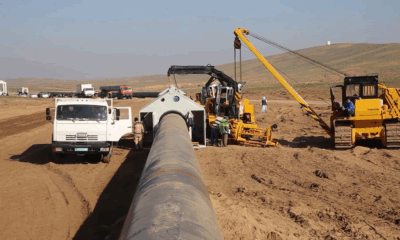
 Latest News5 days ago
Latest News5 days agoTAPI pipeline to reach Herat by end of 2025: Ministry
-

 Sport5 days ago
Sport5 days agoIPL 2025: Dharamsala match abandoned due to security concerns
-

 Regional4 days ago
Regional4 days agoIndia says military stations attacked by Pakistan drones and missiles
-
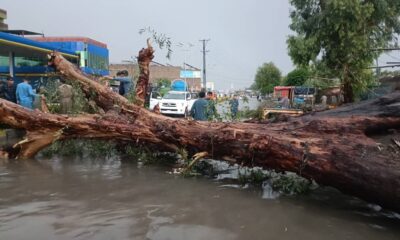
 Latest News4 days ago
Latest News4 days agoOne dead, dozens injured as powerful storm strikes Jalalabad, Afghanistan
-

 Latest News4 days ago
Latest News4 days agoEx-Afghan deputy speaker Qadeer back in Kenyan court for criminal case
-
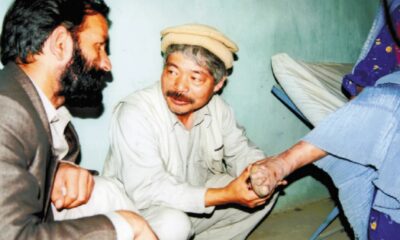
 Health4 days ago
Health4 days agoJapanese charity Peshawar-Kai to resume leprosy treatment in Afghanistan
-
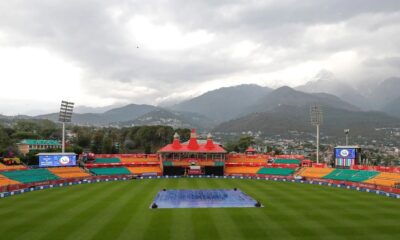
 Sport4 days ago
Sport4 days agoIndia suspends Indian Premier League T20 cricket tournament
-

 Latest News3 days ago
Latest News3 days agoPakistan says India launched attack on Afghanistan, India denies


